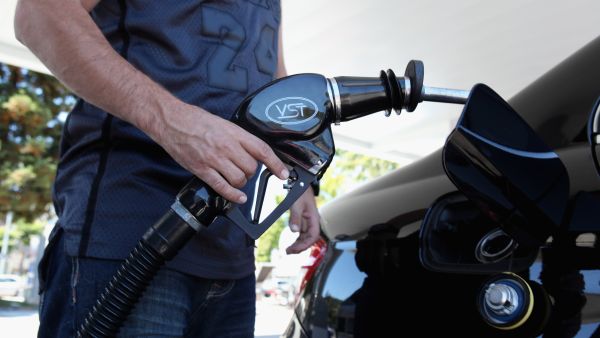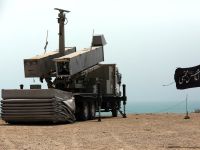While hundreds of thousands of people flock to Cairo’s Tahrir Square to demand an end to a 30-year-long dictatorship, there are some areas of Beirut where Egyptian migrant workers populate the streets, and tell a very different story.
“Mark my words, [Egyptian president] Hosni Mubarak is the most honorable of men,” said Ibrahim Joweida, an Egyptian national who helps keep a shop in Sin al-Fil’s vegetable market, where some 200 Egyptians work.
“Anyone who takes [Mubarak’s] place, whether he is [Egyptian opposition presidential candidate] El-Baradei, or if he is from the Muslim Brotherhood, will wreak havoc on the country,” said Joweida.
“Mubarak is a lion,” another Egyptian vegetable worker exclaimed, as he joined a gathering of 10 Egyptian men.
They told the The Daily Star about their views of their embattled president and the nation-wide demonstrations that have gripped their country over the last week. It was, for the most part, a chorus of praise for the 82-year-old authoritarian leader, and a condemnation of “destruction” caused by the demonstrations.
“I’m not there to see what’s going on, to be able to report on what’s going on. But, tell me, who is a good alternative to Mubarak? No one. Yes, I am against the demonstrations,” said one Al-Azhar university graduate who rushed away to cart off boxes of oranges.
Most of the workers agreed that reform should take place, but argued that that change cannot be brought about from the street. They said that Mubarak had done too much for the country to be forcibly taken out of power by protesters.
They all endorsed Mubarak’s televised address Tuesday, in which he announced he would not run for re-election and condemned the demonstrations. “We are against the destruction,” said Joweida, who claimed to be speaking on behalf of the Egyptians at the market.
One of the workers said he believed democracy to be overrated, adding that living in Beirut had proved that to him.
“Look at you here in Lebanon, you have a hundred political parties, and you can’t even form a government,” said Hajj Abu Ghazi, who has lived in Beirut since 1995.
“Mubarak brings stability. And yes, the peace accords [with Israel] are a good thing, because they bring stability,” a fellow shopkeeper added.
At a sandwich shop near the center of the marketplace, Shehadeh, who declined to give his last name, was smoking a water pipe as images of clashes in Egypt flashed on a television screen. Other workers identified him as the market’s lone supporter of the Egyptian opposition.
“Don’t listen to these guys. They’re ignorant. Thirty years of repression does that to people,” Shehadeh said.
“If I had the means to go to Egypt now and join the demonstrations, I would,” he said.
Instead Shehadeh has been taking part in sit-ins in front of the Egyptian embassy when he can get time off work.
Shehadeh sees the Internal Security Forces, which have cordoned off the embassy over the last week, as agents of Mubarak, but predicted that Friday would finally see the fall of the regime in Egypt.
He praised the Egyptian youth – and their use of social media – for being “the basis of all that has been happening.”
Many of Mubarak’s supporters at the vegetable market agreed with Shehadeh that social organizing by Egypt’s young people was positive and admirable.
“I’m happy with the young people using Facebook. They came up with a good plan, but let them be patient. Can’t they wait seven months for Mubarak’s term to end?” asked one.
“I’m against all the leaders in Egypt, both in the opposition and the government, who have Egypt in their clutches. And I’m with the people,” said a disgruntled Abu Ayman, a middle-aged Egyptian who was passing through Shehadeh’s shop.
In near-by Burj Hammoud, another Egyptian migrant worker was tending to his selection of produce.
“My heart is with the revolution,” he said, and added that economic hardship brought on by dictatorship is the reason why he was in Lebanon in the first place.
“I have no identity papers here, no rights or security whatsoever. I want to go back to my country. But what can I do to survive over there – steal?” said Abdullah. “It’s a monstrous oppression,” he added.
He believes Mubarak has lacked legitimacy with the people for at least a couple of decades, which has had dire repercussions for Egyptians around the world.
“[Lebanese] police don’t see Egyptians as human beings. They see them as Hosni Mubarak, and so we get no respect over here,” said Abdullah.
By Tamara Qiblawi.








